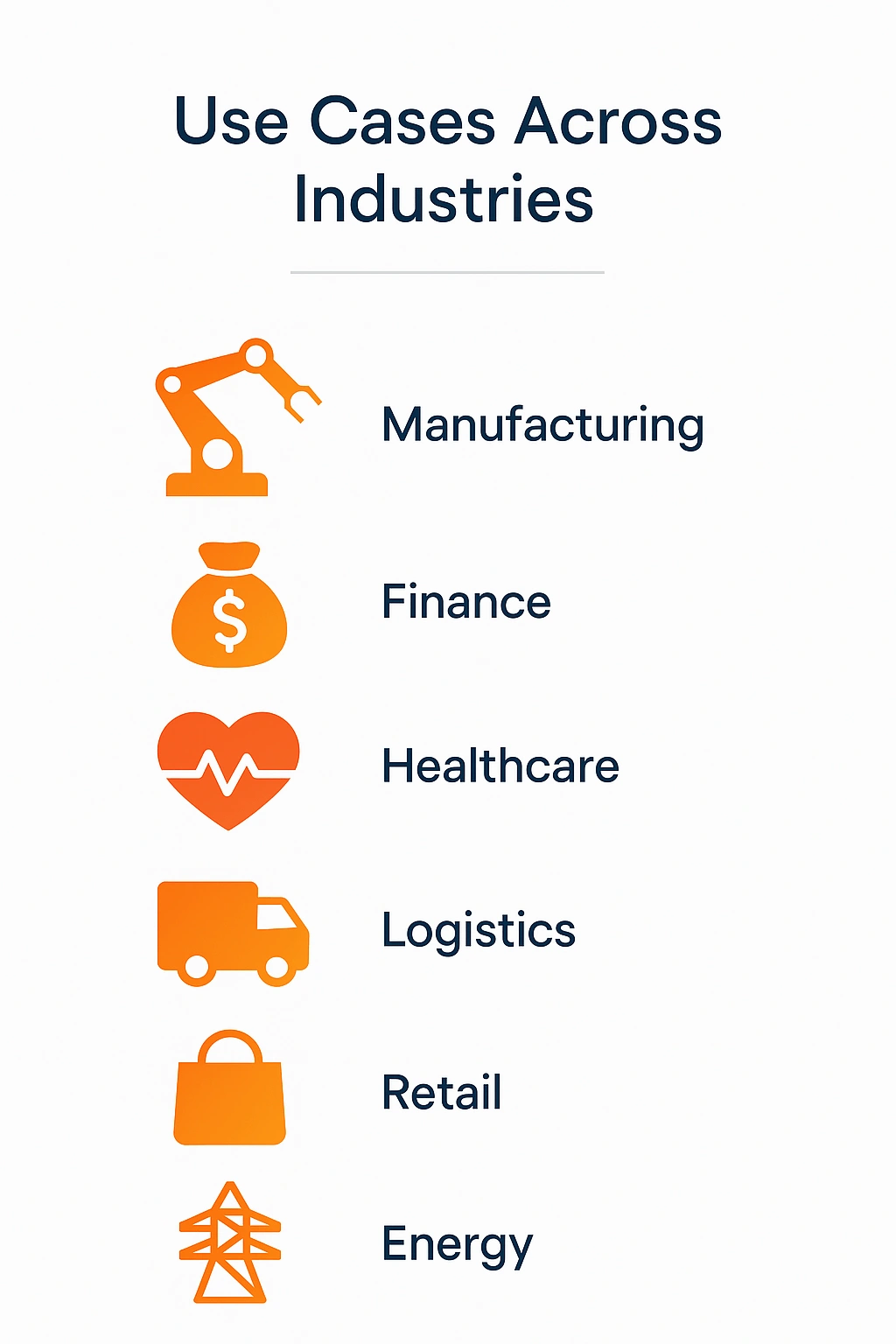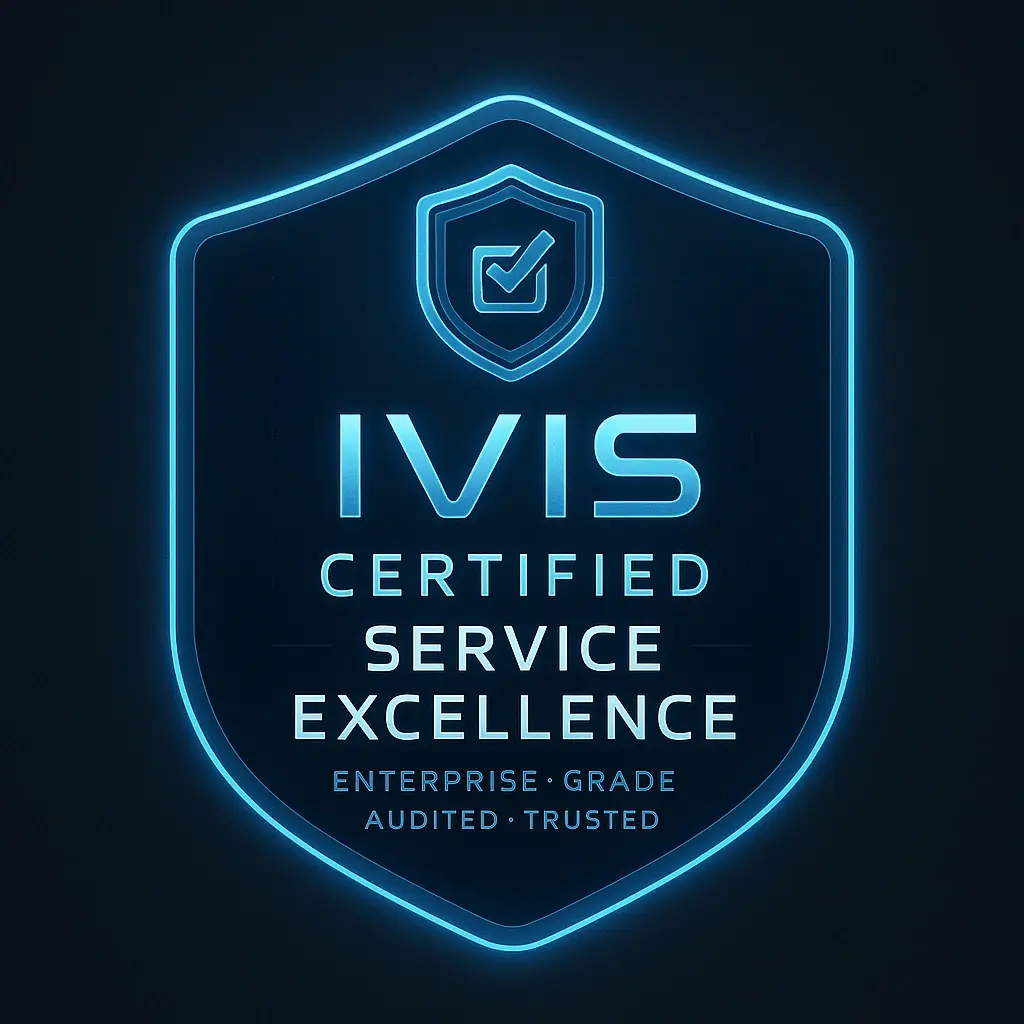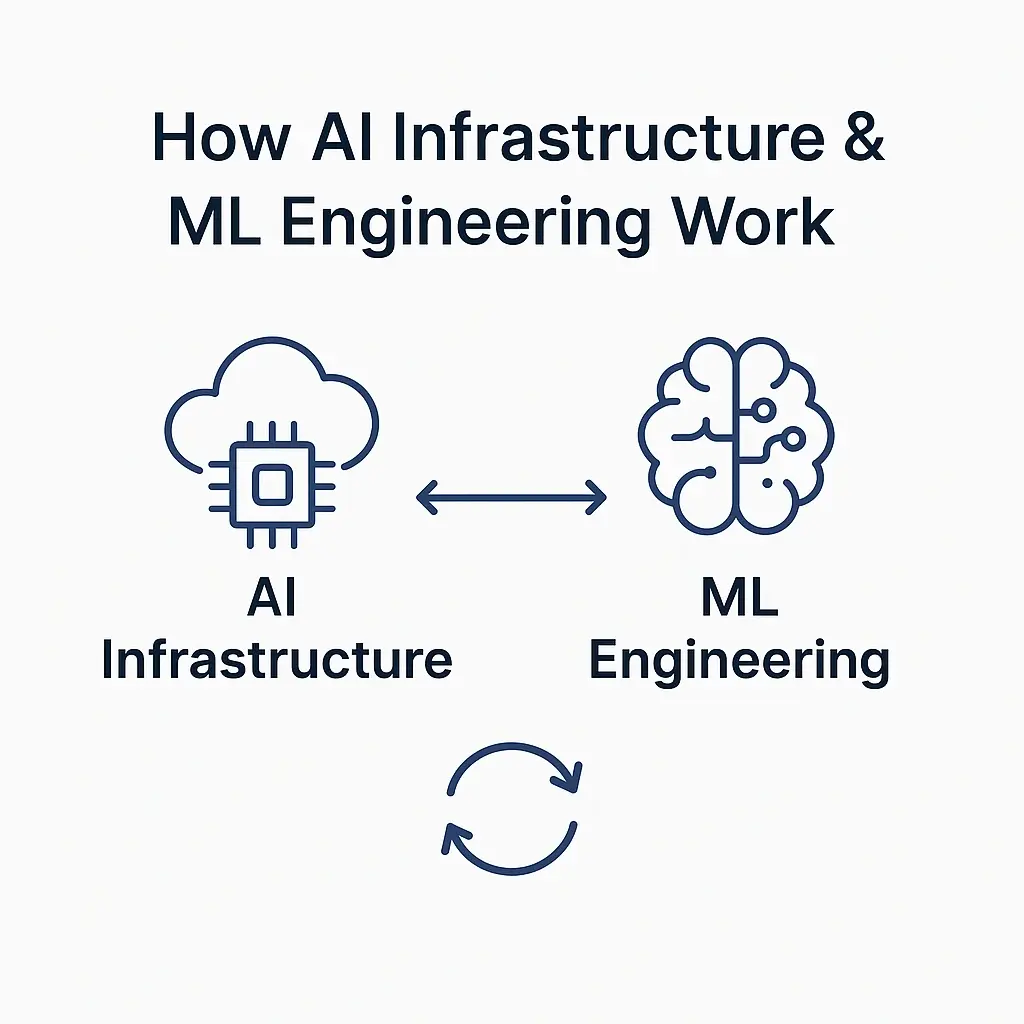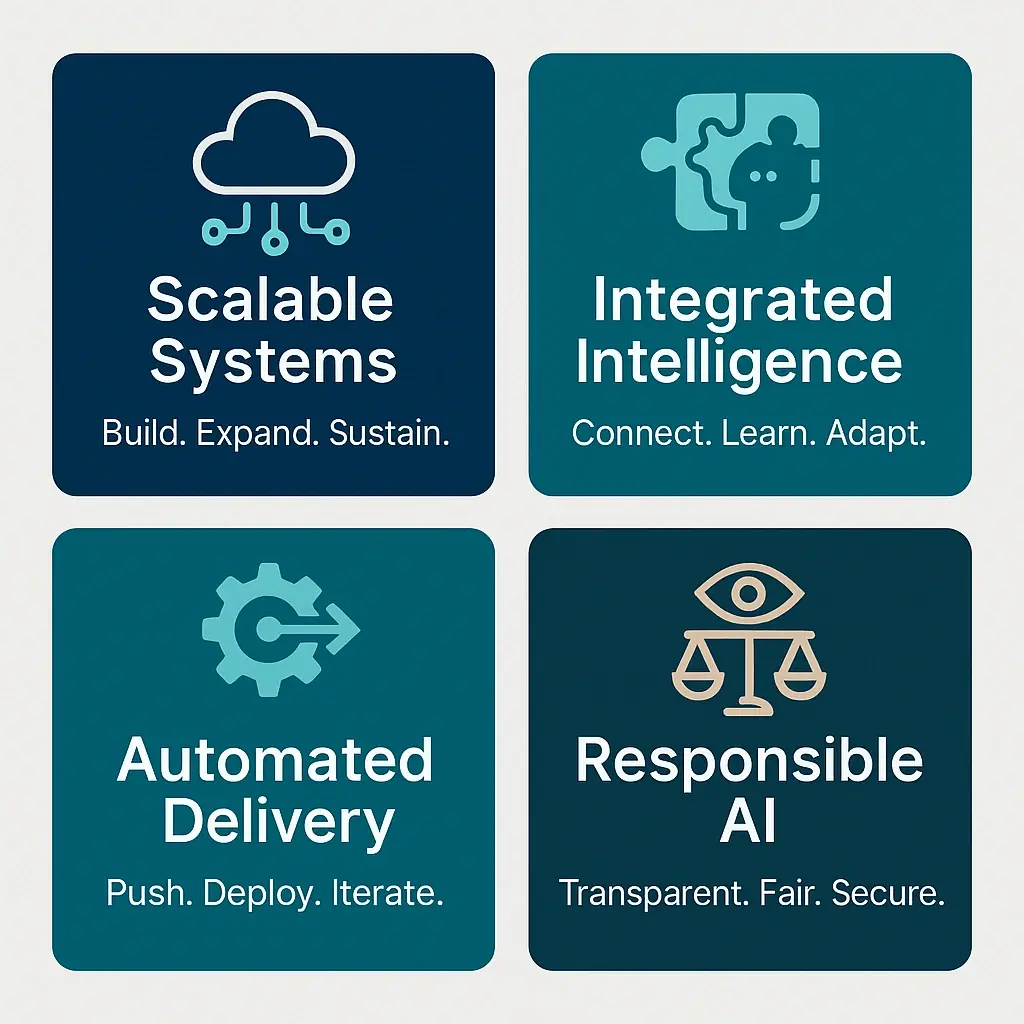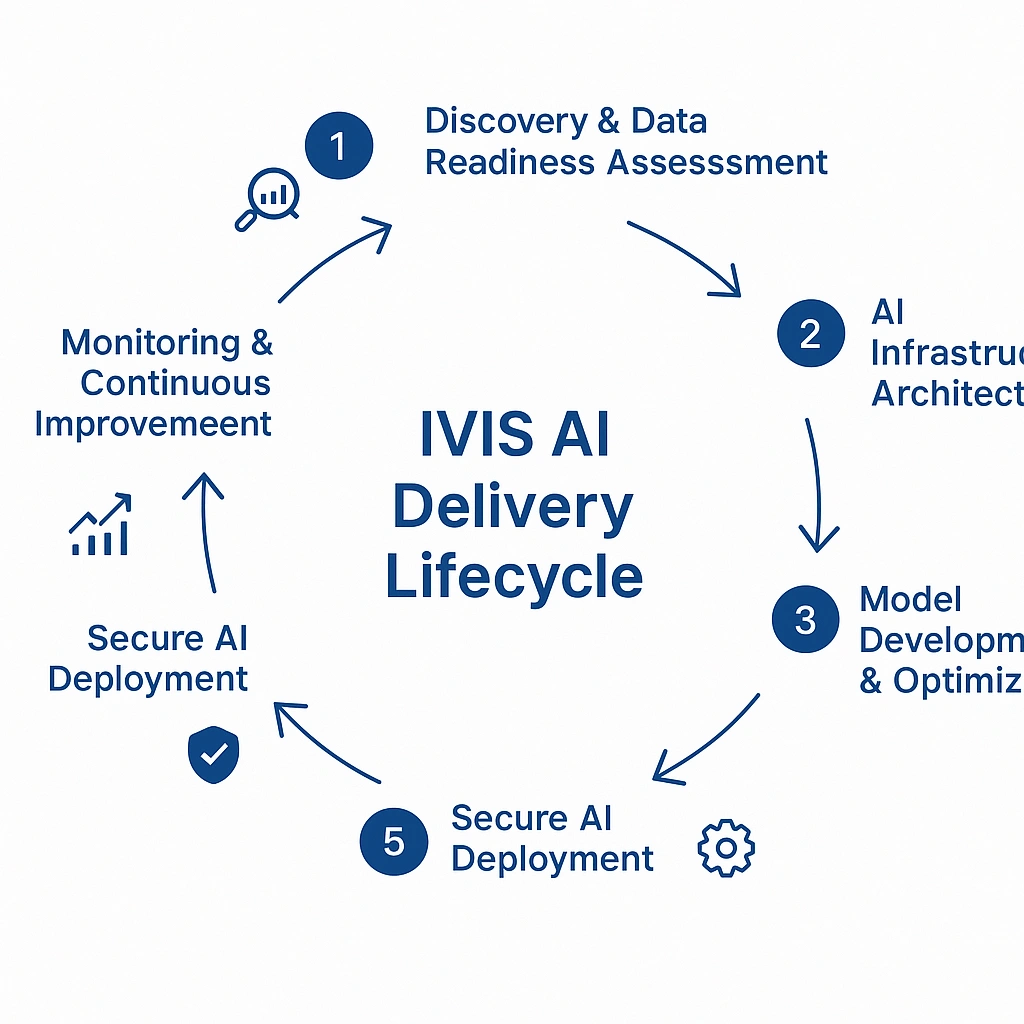Key Offerings
At IntelliVersal (IVIS), we provide a comprehensive AI infrastructure and ML engineering stack that enables scalable, secure, and production-ready intelligence across your enterprise.
|
Capability |
Expanded Description |
|
AI Infrastructure Design |
We architect high-performance, flexible infrastructure tailored to your needs—whether cloud-native, hybrid, or on-premise. This includes GPU/TPU clusters, virtual machines, container orchestration (Kubernetes), and resource autoscaling for real-time AI workloads. |
|
ML Model Engineering |
Our ML engineers develop and optimize models using supervised, unsupervised, and reinforcement learning techniques. We specialize in natural language processing (NLP), computer vision (CV), time series forecasting, and deep learning architectures tailored to industry-specific goals. |
|
Data Pipelines & Feature Stores |
We build automated data ingestion workflows with real-time and batch processing capabilities. Our feature stores centralize feature management, version control, and labeling, supporting consistent and reusable ML training and inference across teams and applications. |
|
ModelOps & CI/CD for ML |
IVIS enables continuous integration and delivery of ML models through automated pipelines for training, validation, deployment, and rollback. We incorporate monitoring, drift detection, audit trails, and lifecycle management to ensure consistent model performance in production. |
|
Secure AI Deployment |
Every solution includes identity access management, data encryption, privacy compliance (GDPR, HIPAA), and explainable AI (XAI) tools. Our Responsible AI framework ensures fairness, transparency, and governance throughout the AI lifecycle. |
|
Cross-Platform Integration |
IVIS solutions are API-first and designed to integrate seamlessly with existing enterprise platforms—such as ERP (Odoo, SAP), CRM, IoT ecosystems, databases, and third-party analytics tools—ensuring data consistency and system-wide intelligence. |
